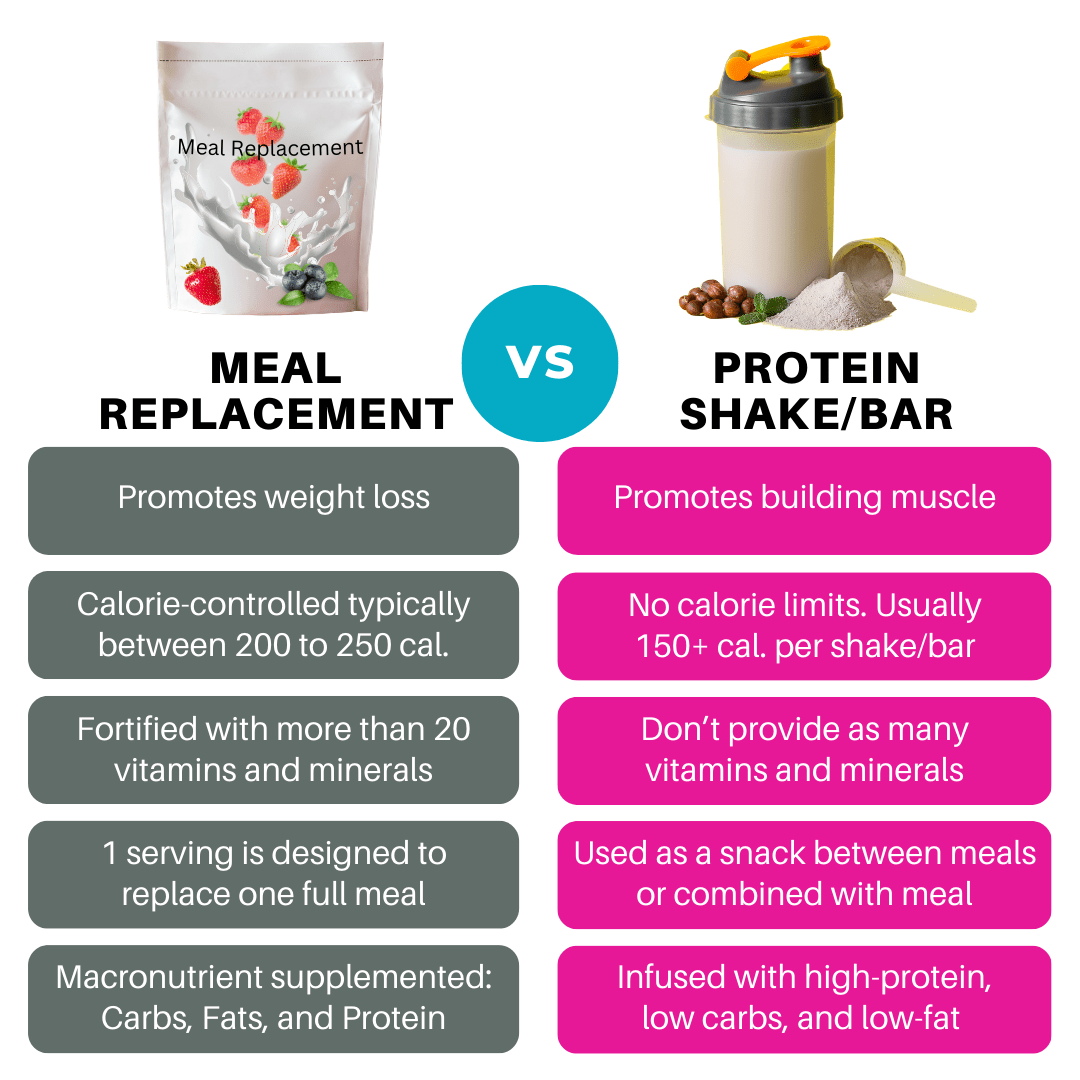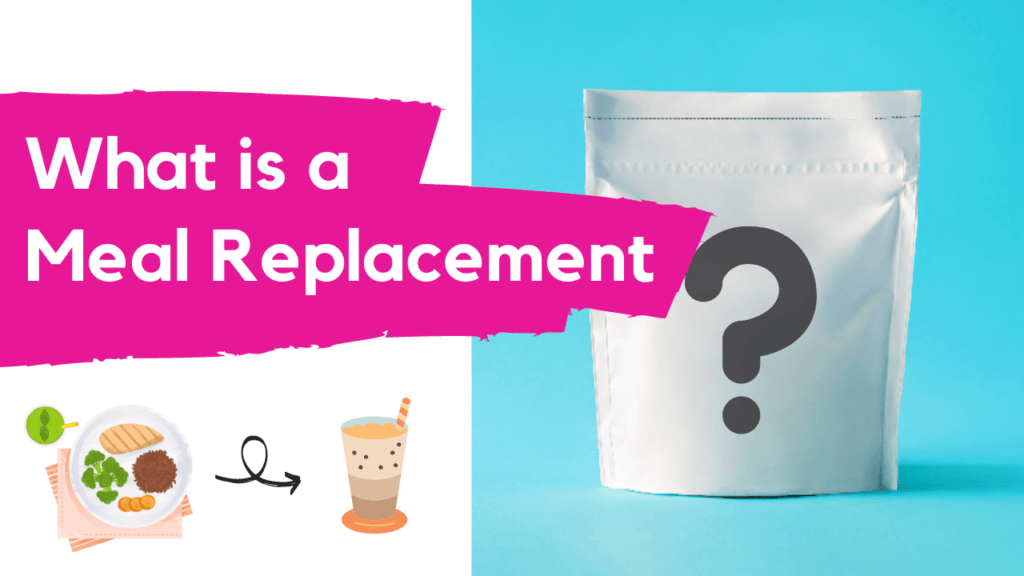Bariatric meal replacements are a supplement used to replace meals after weight loss surgery. These are especially important with procedures like gastric sleeve surgery, gastric bypass surgery, and duodenal switch surgery because patients stomach is restricted, causing patients to feel full faster.
After bariatric surgery, it’s important to fulfill nutrient deficiencies with bariatric meal replacements that incorporate essential vitamins, supplements, and protein. We offer bariatric meal replacements that are high-protein, filled with essential nutrients, and great tasting to supplement cravings and provide a great choice for a healthy lifestyle.
Meal replacements are one of several high-protein options we supply that are easy to both ingest and digest.
What is a Meal Replacement?
A meal replacement is a product intended as a substitute for a nutritious meal. It is often sold as a packaged drink, bar, soup, or oatmeal and usually has a controlled amount of calories and nutrients. Meal replacements are designed for different purposes. It can be designed for a weight loss program as a low-calorie and portion-controlled snack, or substitute for a meal.
It can also be designed for elderly people who may have a hard time getting proper nutrients in their diet. Meal replacements can also be designed for people who burn a lot of calories through weight training and/or aerobic activity and need portable meals to support their active lifestyle.
A bariatric meal replacement is a substituted meal in the form of a drink, protein bar, shake, soup, broth, or other food groups. These bariatric meal replacements have a set number or nutrients that patients typically lack after bariatric surgery. They tend to be protein-rich, nutritious, and healthy.
What is the Difference Between Meal Replacement and Protein Shake or Bar?

In the United States, a “meal replacement” is not defined in the federal Food and Drug Administration regulations. Despite this, a meal replacement refers to a calorie-controlled, prepackaged product in the form of a bar or beverage (ready to drink or powder), that replaces a regular meal.
Meal replacements
Meal-replacement products usually provide 200 to 250 calories per serving, are fortified with more than 20 vitamins and minerals. In other words, any packaged shake or bar can be labeled as a meal replacement but there are certain specifications to look for when you are picking one out.
- Promotes weight loss and calorie counting diets
- Calorie-controlled typically between 200 to 250 calories
- Fortified with more than 20 vitamins and minerals
- 1 serving is designed to replace one full meal
- Macronutrient supplements with healthy balance of carbohydrates, fats, and protein
Protein shakes and bars
Protein shakes and bars can be very similar to a meal replacement but generally don’t provide as many vitamins and minerals, and may only provide protein so are considered supplemental (in addition to a healthy diet, for those who are only looking to increase protein).
- Promotes muscle building and repairing
- No calorie limits although typically are 150+ calories
- Do not provide essential vitamins and minerals
- Used as a snack between meals or in combination with a meal
- Infused with high-protein, low carbs, low fat
Benefits of Meal Replacements
Bariatric meal replacements are beneficial because they are:
- Portion controlled
- Calorie regulated
- Portable
- Low in sugar
- May provide fiber, vitamins, and minerals
- Generally good for diabetics
- High protein, which leads to satiety
- Usually low-carb and a great snack for low-carb diets
What to Look For in a Meal Replacement
- At least 15 grams of protein per serving
- At least 3 grams of fiber per serving
- Less than 10 grams of sugar per serving
- Always read the label for content, especially sugar. Just because it’s labeled a meal replacement, doesn’t mean it’s healthy. Some contain a high amount of sugar.
Moderation: As with anything else in life, moderation is key. Meal replacements can safely be used for snacks or to replace occasional meals but they are not meant to completely replace a healthy diet. It is important to also have a diet with plenty of fresh, whole foods. They are not designed for whole nutrition
OUR MEAL REPLACEMENT PRODUCTS:
Our products termed “meal replacements” are high-quality products that can be enjoyed by anyone. They vary from 100 to 160 calories, have a minimum of 15 grams of protein and contain at least 20% daily value of vitamins. Our meal replacements are low in carbohydrates and sugar, and also provide fiber and healthy fats for a healthy balance.
